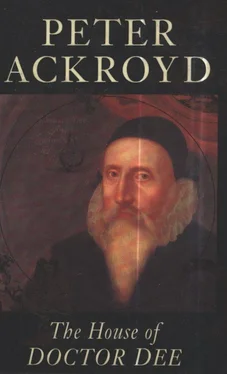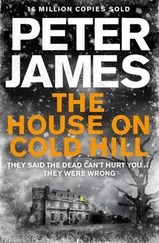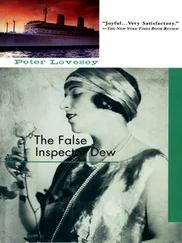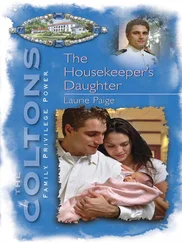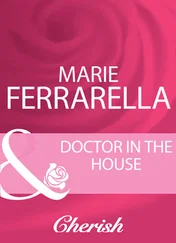Peter Ackroyd - The house of Doctor Dee
Здесь есть возможность читать онлайн «Peter Ackroyd - The house of Doctor Dee» весь текст электронной книги совершенно бесплатно (целиком полную версию без сокращений). В некоторых случаях можно слушать аудио, скачать через торрент в формате fb2 и присутствует краткое содержание. Город: London, Год выпуска: 1993, ISBN: 1993, Жанр: Историческая проза, на английском языке. Описание произведения, (предисловие) а так же отзывы посетителей доступны на портале библиотеки ЛибКат.
- Название:The house of Doctor Dee
- Автор:
- Жанр:
- Год:1993
- Город:London
- ISBN:9780241125007
- Рейтинг книги:5 / 5. Голосов: 1
-
Избранное:Добавить в избранное
- Отзывы:
-
Ваша оценка:
- 100
- 1
- 2
- 3
- 4
- 5
The house of Doctor Dee: краткое содержание, описание и аннотация
Предлагаем к чтению аннотацию, описание, краткое содержание или предисловие (зависит от того, что написал сам автор книги «The house of Doctor Dee»). Если вы не нашли необходимую информацию о книге — напишите в комментариях, мы постараемся отыскать её.
The house of Doctor Dee — читать онлайн бесплатно полную книгу (весь текст) целиком
Ниже представлен текст книги, разбитый по страницам. Система сохранения места последней прочитанной страницы, позволяет с удобством читать онлайн бесплатно книгу «The house of Doctor Dee», без необходимости каждый раз заново искать на чём Вы остановились. Поставьте закладку, и сможете в любой момент перейти на страницу, на которой закончили чтение.
Интервал:
Закладка:
PETER ACKROYD
THE HOUSE OF DOCTOR DEE
ONE
I INHERITED THE house from my father. That was how it all began. I had heard nothing about it until after his death, and it was not until the summer of this year that I visited it for the first time. The house was in Clerkenwell, an area I scarcely knew, and I took the tube from Ealing Broadway to Farringdon. I hardly needed to save the expense of a taxi now, but since childhood I have always enjoyed riding under the ground. I am so accustomed to travelling into the City or West End, in fact, that I recognized nothing out of the ordinary in the course of this particular journey — except, perhaps, for a more powerful sense of the change. It begins to happen when I leave the Central Line at Notting Hill Gate, and ride the escalator to the Circle Line platforms on a higher level. The stations along this route have always been less familiar to me; a slight adjustment is necessary, therefore, and I adopt another layer of anonymity as the train moves on from Edgware Road and Great Portland Street to the old centres of the city. Each time the automatic doors close I experience a deeper sense of oblivion — or is it forgetfulness? Even the passengers seem to be transformed, and the general atmosphere of the carriage becomes more subdued and, on occasion, more fearful.
Just before the train arrived at Farringdon it emerged from the tunnel and, for a moment, I noticed the pale sky; it reminded me of the mild, depressing Ealing light, but as soon as I stepped out of the underground station into Cowcross Street that illusion was dispelled. For the light of the city changes — pearly in the west, sombre in the south, misty in the north, sharp in the east — and here, close to the centre, it had a particularly smoky quality. I could almost taste the scent of burning.
No doubt this accounted for my nervousness as I made my way towards the house which my father had left to me — the house about which I knew nothing except its address. I had looked up Cloak Lane in a London atlas, and in my imagination I had already placed it among other streets packed with shops and offices; but as I made my way down Turnmill Street towards Clerkenwell Green, I realized that this was like no other part of central London. It seemed both more open and more desolate, as if at some point the area had been laid waste. Cloak Lane itself was difficult to find. I estimated that it was some thirty yards north-west of the Green, but when I walked in that direction I found myself circling around Clerkenwell Close and the church of St James. It was a late Friday afternoon, and the grounds of the church were deserted; three cats sat along a portion of ruined wall on the south side, and pigeons murmured among the gravestones, but of human life there was no sign.
And then I saw it. It was at the end of what looked like an alley, sprawled across a patch of waste ground, and for a moment I closed my eyes; as I opened the gate and prepared to approach it, I found myself concentrating upon the pale bindweed, the dock and nettle, growing up among the broken stones of the path. I have always disliked weeds, because they remind me of my childhood; I still remember my father telling me that they spring from the bodies of the dead and, as I walked down the path, I crushed them under my shoe. It was only then, when I stopped and looked up from the mangled remains of the ragwort, that I noticed the strangeness of this house. I had assumed at first glance that it belonged to the nineteenth century, but I could see now that it was not of any one period. The door and fanlight seemed to be of the mid eighteenth century, but the yellow brickwork and robust mouldings on the third storey were definitely Victorian; the house became younger as it grew higher, in fact, and must have been rebuilt or restored in several different periods. But its most peculiar aspect was its ground floor: it ranged beyond the area of the other storeys and, as I walked closer, I realized that the basement covered the same more extensive ground. These parts of the house were not faced with brick; the walls seemed to be fashioned out of massive stone, and suggested a date even earlier than the eighteenth-century door. A much larger house must once have existed here, of which the ground floor and the basement were the only visible remnants; later additions were on a more modest scale, so that now the central section rose up like some broad tower from its rambling origins. No. It resembled the torso of a man rearing up, while his arms still lay spread upon the ground on either side. When I walked towards the steps, it was as if I were about to enter a human body.
I took the keys which my father had bequeathed to me, and opened the door. A draught of air enveloped me for a moment, and I thought I detected a sweet or perfumed aroma within it; it was as if the dust of this old house had somehow been overlaid with syrup or marzipan. Then I walked into the hall and, crouching down just beyond the threshold, listened intently. The truth is that I have a particular horror of rats — of anything, really, which invades and lives within an empty house — and if there had been the slightest sound or shadow of movement, I would have shut the door behind me and never returned. I would have sold this place and secretly been grateful for the excuse to do so. But there were no sounds. The house was only a few yards from the Farringdon Road, and was overlooked by a small estate of Peabody Trust flats; yet it was entirely quiet. I might just as well have entered a sealed room.
I stood upright and walked down the wide hallway. There was a staircase to my left and, on the right, a dark-brown door which appeared to lead to some other room. It was locked. I shook the handle impatiently, and there was something like a dead echo from the other side which suggested to me that this door opened upon some basement stairs. So I left it, and made my way towards the room at the end of the passage. It was much larger than I had expected, and covered almost the whole of the ground floor; but it had a low ceiling, so that it seemed unnaturally restricted. I could see that the interior walls were fashioned out of the stone I had glimpsed from the path, and there were several elongated windows cut into it which seemed almost as old as the fabric itself. The room was also of an unusual shape, since it linked both wings of the house and formed a kind of enclosed courtyard around the hall. There were one or two items of furniture — a chair, a sofa, a wooden chest — but they only served to emphasize the bareness and silence of this place. I was baffled and, I suppose, rather depressed: I knew that all this was now mine, but I did not feel I could claim any possible connection with it. But if I did not own it, then who did?
I went back into the hallway, and climbed the stairs. There were two rooms on both of the other floors; they were all light, with high ceilings, and had an altogether freer atmosphere than the room I had just left. From the windows here I could see the small housing estate and, just beyond it, the spire of St James; Clerkenwell Green was also visible, although the 'Green' itself was merely a space in the middle of the shops, offices and houses which had been fashioned out of the grand eighteenth- and nineteenth-century dwellings of the area. From the back windows on these upper floors I could see the viaduct covering the underground railway, and beyond it the old steep streets leading to Saffron Hill and Leather Lane. I was still a stranger here, and now I experienced a distinct though related sensation — that somehow this house, and myself within it, had no connection with the world which surrounded us. What had my father done here? All the rooms were simply furnished and, although they showed no sign of being recently inhabited, they were not in a state of neglect or disrepair; the electric lights worked and the little kitchen, in an alcove off the ground-floor room, seemed to function. It looked as if the real owner had embarked upon a long journey, with everything left in readiness for his return. Yet my father had never mentioned any house in Clerkenwell. He had so many other properties that perhaps this should not have surprised me — except that the others, as far as I knew, were all commercial sites. And this was also the only house he had explicitly mentioned in the course of his bequests to me. Why was it of such importance to him?
Читать дальшеИнтервал:
Закладка:
Похожие книги на «The house of Doctor Dee»
Представляем Вашему вниманию похожие книги на «The house of Doctor Dee» списком для выбора. Мы отобрали схожую по названию и смыслу литературу в надежде предоставить читателям больше вариантов отыскать новые, интересные, ещё непрочитанные произведения.
Обсуждение, отзывы о книге «The house of Doctor Dee» и просто собственные мнения читателей. Оставьте ваши комментарии, напишите, что Вы думаете о произведении, его смысле или главных героях. Укажите что конкретно понравилось, а что нет, и почему Вы так считаете.
